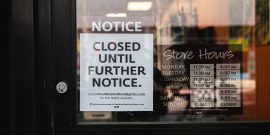Two Cheers for the Great Recession
A February 17 Data Alert from the Rockefeller Institute contains good news (of sorts) from the job front. After a sharp drop in 2008-2009, private sector employment has rebounded in 20010-2011—not as rapidly as one would wish, but quite smartly, considering all the stuff that’s hanging over the economy. The rebound has been partially masked by the trends in state and local government (SLG) employment: after a stimulus-fueled increase, the numbers began to drop in mid-2009 and have continued to do so since. Here’s the picture:
This is atypical: SLG employment usually increases after the onset of a recession. The only exceptions, the Rockefeller Alert shows, are the 1980 and the 2007 recession. This, the economists say, is as it should be: government should be “anti-cyclical” and compensate for private-sector job losses. The glitch, to my mind, is that SLG also grows in good times, except more so; thus, there’s never a good time to let the air out of a bloated bureaucracy.
In that light, I incline to a contrarian view. If we must have a recession, let it be a good one and get something out of it—like, less government. If you disagree, that’s all the more reason to commend states that act anti-cyclically on the way up, by using the early stage of a private-sector recovery to reduce public sector employment. The winner in that category, going away, is the State of Texas. In 2010-2011, it racked up a private sector job gain of 3.2%, while reducing SLG employment by 3.1%. Other states that match or exceed the national average (1.6%/(.08%)) in both dimensions: Oregon, Washington, Michigan, South Carolina, New Mexico, Kentucky, Ohio, and Florida.


